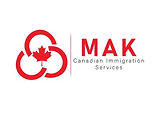How to Apply for Spousal Sponsorship in Canada: Step-by-Step Guide
- Mak Immigration
- Jul 2
- 3 min read

Canada offers one of the most welcoming immigration policies for families, and spousal sponsorship is a key part of that. If you are a Canadian citizen or permanent resident, you have the right to sponsor your spouse or common-law partner for permanent residence in Canada. This step-by-step guide will help you understand the process, requirements, and how to apply successfully.
What Is Spousal Sponsorship?
Spousal sponsorship is a program under Canada’s family class immigration that allows a Canadian permanent resident or citizen to sponsor their spouse, common-law partner, or conjugal partner to become a permanent resident of Canada. The main goal is to reunite families by allowing partners to live together in Canada permanently.
The process involves two applications submitted together: one from the sponsor and one from the person being sponsored. Both must be approved by Immigration, Refugees and Citizenship Canada (IRCC) for the process to be completed.
Who Can Sponsor?
To apply for spousal sponsorship, the sponsor must be at least 18 years old, be a Canadian citizen or permanent resident, and not be receiving social assistance for reasons other than disability. The sponsor must also demonstrate financial capability to support their spouse for at least three years after their arrival in Canada.
Certain individuals may be barred from sponsoring due to past immigration violations, criminal offenses, or if they themselves were sponsored within the last five years.
Who Can Be Sponsored?
You can sponsor a spouse, common-law partner, or conjugal partner who is at least 18 years old. For your application to be accepted, your relationship must be genuine and not entered into primarily for immigration purposes. IRCC conducts detailed reviews and sometimes interviews to ensure the authenticity of the relationship.
There are two main types of spousal sponsorship applications: inland and outland. Inland applications are filed when the spouse is already living in Canada, while outland applications are used when the spouse resides outside Canada. Inland applicants may be eligible for an open work permit while the application is being processed.
Required Documents
To apply, both the sponsor and the applicant must provide personal identification documents, proof of relationship, financial documents, police clearance certificates, and medical exams. The application must be complete and include all required forms and supporting materials. Any missing documents can lead to delays or even refusal.
Proof of relationship can include photographs, chat records, joint bank statements, rental agreements, travel records, and anything else that demonstrates a committed relationship.
Application Process
The first step is downloading the spousal sponsorship application package from the official IRCC website. This includes both the sponsorship and permanent residence applications. Carefully fill out all forms and pay the required fees, which typically include the sponsorship fee, principal applicant processing fee, and the right of permanent residence fee.
Once the application is submitted, you will receive an acknowledgment of receipt. IRCC may request biometrics and further documents. Processing times vary, but most spousal sponsorship applications are processed within 12 months. However, this timeline may change based on application volume and complexity.
During this period, it is important to respond to any IRCC communications promptly. If you change your address or contact information, update IRCC to avoid delays.
After Approval
If the application is approved, the sponsored spouse will be granted permanent residence status. They will receive a Confirmation of Permanent Residence (COPR) and may be required to attend a landing interview. Inland applicants do not need to leave Canada, while outland applicants will be given entry instructions.
Once permanent residence is granted, the spouse is entitled to work, study, and access healthcare in Canada. The sponsor remains financially responsible for their spouse for three years, even if the relationship ends during that period.
Conclusion
Applying for spousal sponsorship in Canada is a detailed process, but with careful preparation, it can be completed smoothly. Ensuring that your documents are complete, your relationship is clearly proven, and your communication with IRCC is consistent will improve your chances of success. Whether your partner is in Canada or abroad, reuniting through the spousal sponsorship program is entirely achievable with the right guidance.




Comments